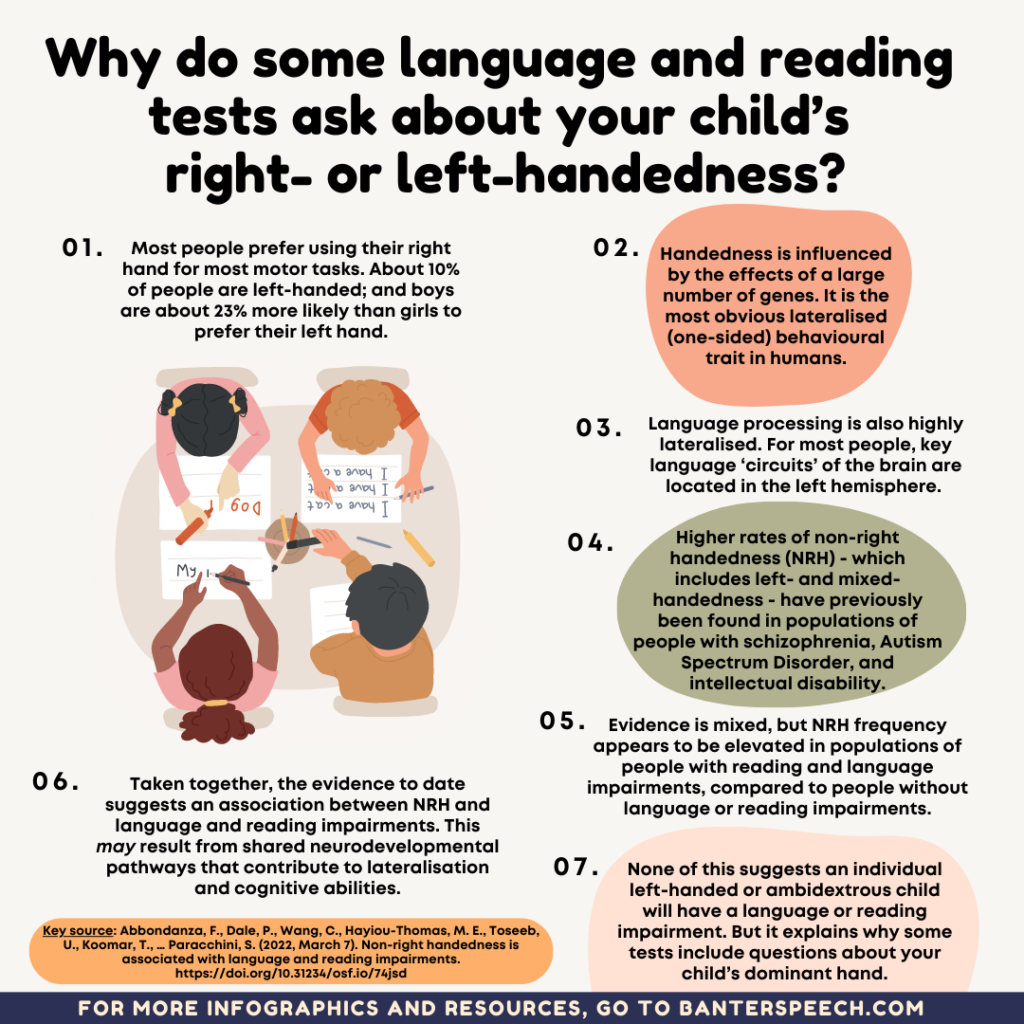Most people prefer using their right hand for most motor tasks. About 10% of people are left-handed; and boys are about 23% more likely than girls to prefer their left hand.
Handedness is influenced by the effects of a large number of genes. It is the most obvious lateralised (one-sided) behavioural trait in humans.
Language processing is also highly lateralised. For most people, key language ‘circuits’ of the brain are located in the left hemisphere.
Higher rates of non-right handedness (NRH) – which includes left- and mixed-handedness – have previously been found in populations of people with schizophrenia, Autism Spectrum Disorder, and intellectual disability.
Evidence is mixed, but NRH frequency appears to be elevated in populations of people with reading and language impairments, compared to people without language or reading impairments.
Taken together, the evidence to date suggests an association between NRH and language and reading impairments. This may result from shared neurodevelopmental pathways that contribute to lateralisation and cognitive abilities.
None of this suggests an individual left-handed or ambidextrous child will have a language or reading impairment. But it explains why some tests include questions about your child’s dominant hand.

Key source: Abbondanza, F., Dale, P., Wang, C., Hayiou-Thomas, M. E., Toseeb, U., Koomar, T., … Paracchini, S. (2022, March 7). Non-right handedness is associated with language and reading impairments. https://doi.org/10.31234/osf.io/74jsd
Related article: Test Scores: What do they mean?
This article also appears in a recent issue of Banter Booster, our weekly round up of the best speech pathology ideas and practice tips for busy speech pathologists and speech pathology students.
Sign up to receive Banter Booster in your inbox each week:

Hi there, I’m David Kinnane.
Principal Speech Pathologist, Banter Speech & Language
Our talented team of certified practising speech pathologists provide unhurried, personalised and evidence-based speech pathology care to children and adults in the Inner West of Sydney and beyond, both in our clinic and via telehealth.


Leave a Reply